Description
ABSTRACT
Evolving Narrative in Energy Transition – A Case for “Integrated”, Hybrid Thermal-Renewable Power Purchase Agreements
Victor Ayo-Odewale*
The rapid expansion of the global energy transition market, fueled by substantial investments in renewable energy infrastructure, poses a significant challenge for the African continent and Nigeria. The continent is under pressure to phase out fossil fuel use and transition to clean energy while grappling with energy security concerns for its vast population. To ensure a gradual and sustainable transition without decarbonising their economies into poverty, regulators in certain climes are revising norms and setting up structures to allow parties to bundle renewable energy with fossil fuel under existing fossil fuel-based power purchase agreements. This paper explores the potential benefits of this structure for energy transition and energy contracts. It examines the prospects of the extant regulatory framework and recent initiatives in the Nigerian electricity sector to accommodate this hybrid generation of electric power trend. This paper concludes that to fully leverage the benefits of this structured integration and ensure optimal utilisation of Nigeria’s rich fossil fuel reserves as the country gears towards net-zero emissions by 2060, energy regulators (including crucial stakeholders) must be the first mover by driving pioneering initiatives to encourage, support and increase investments in both on-grid and off-grid electric power projects.
Keywords: Energy Transition, Renewable Energy, Power Purchase Agreement, Hybrid Generation, Bundling Renewable Energy, Bundled Power Purchase Agreement
INTRODUCTION
With Africa’s rapid population growth and ongoing industrialisation, the continent is on the brink of an unprecedented surge in energy demand over the next two decades. This looming energy crisis, where demand threatens to outstrip supply, has thrust the issue of energy security in Africa into the spotlight.1 Projections for 2040 suggest that Africa’s energy demand could skyrocket, potentially reaching a level 30% higher than today, a stark contrast to the expected 10% global increase in energy demand.2 The juxtaposition of Africa’s depleting fossil fuel reserves and the global push to reduce carbon emissions has sparked a surge in renewable energy projects and investments across the continent. This shift is a significant development in Africa’s energy sector.
*LL.B (Ife) First Class Honours, BL. Associate, Elias, Lagos, Nigeria.
- Acha Leke, Peter Gaius-Obaseki and Oliver Onyekweli, ‘The Future of African Oil and Gas: Positioning for the Energy Transition’ (McKinsey & Company, 8 June 2022) accessed 15 April 2024.
- ibid.

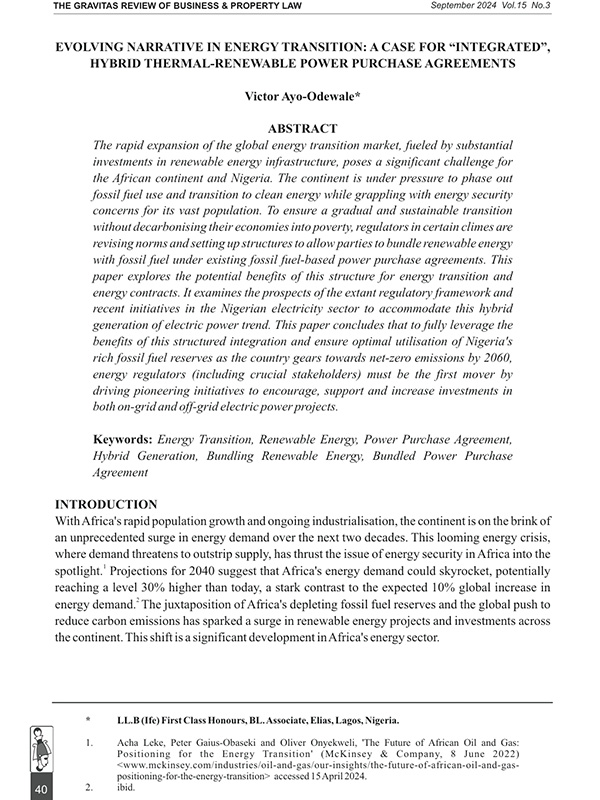
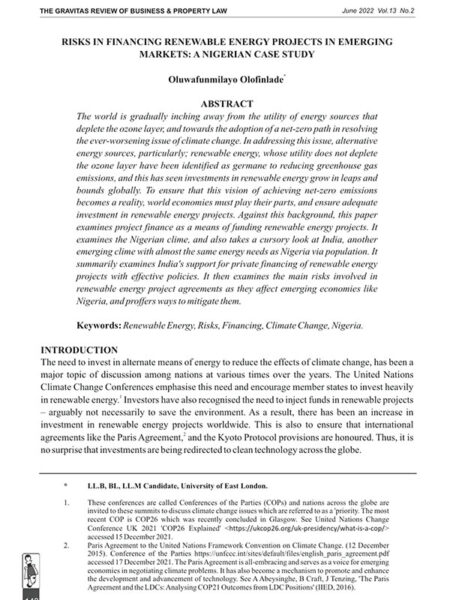
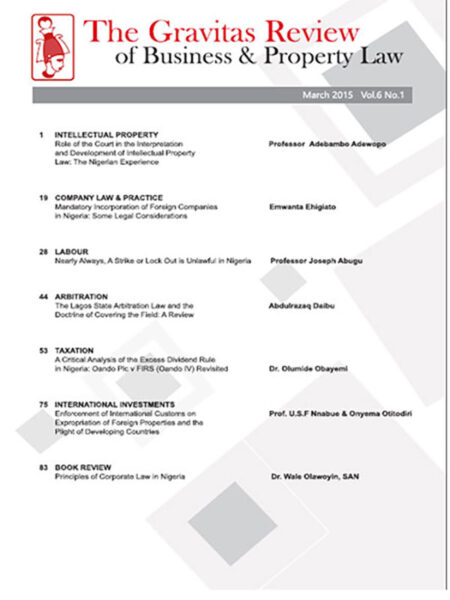
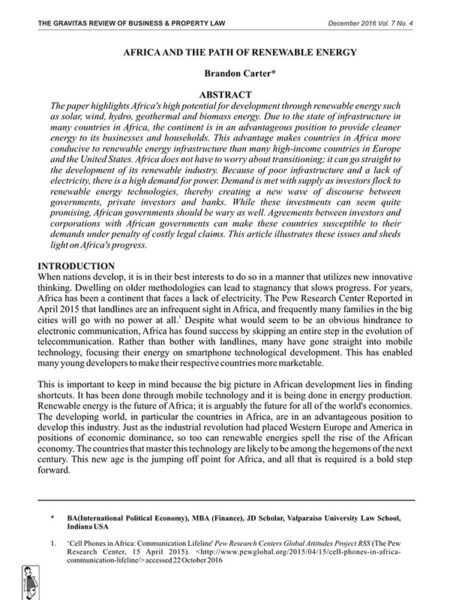


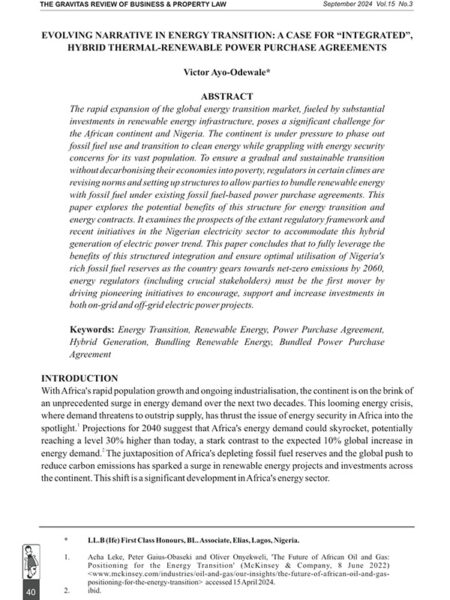
Reviews
There are no reviews yet.